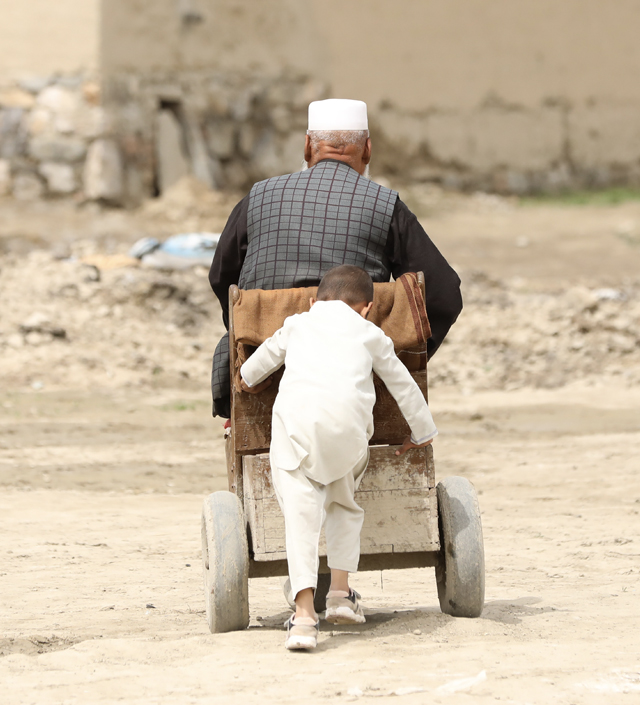The Taliban’s takeover of Afghanistan this weekend has us thinking about the countless risks and dangers this poses globally, including what will happen to that country’s older population. Not surprisingly, video of Afghan citizens swarming the tarmac at Kabul Airport this morning showed the crowd attempting to flee looked younger and seemingly in good health — particularly those clinging to the outside of a U.S. Air Force jet.
Afghanistan has one of the world’s smallest percentages of older people. According to a United Nations report, just 2.6% of the country’s population was 65 and older in 2019, compared with 6% for its region, Southern Asia (Afghanistan sits at the crossroads of Southern and Central Asia). By 2030, the 65-plus population was expected to inch up to 3.1% in Afghanistan and 8% in Southern Asia. To put things in perspective, the 65-and-up cohort in 2019 comprised 18.8% of Europe (projected to reach 23% by 2030) and 16.2% of the U.S. (20.3% by 2030).
Although Afghanistan’s percentage of adults age 65-plus is very small, this still added up to 995,000 people in 2019, according to the U.N. report. But it’s unlikely many are truly elderly, at least by Western standards. According to the World Bank, the country’s average life expectancy in 2019 was just 64.8 years old.
As grim as this statistic sounds, it’s a significant improvement from Afghanistan’s average life expectancy in 2005 (58.3 years), 2000 (55.8), 1990 (50.3), 1980 (43.2) and 1970 (37.4) and 1960 (32.4).
For three straight years (from 2013 to 2015), the Global AgeWatch Index from HelpAge International, a network that supports older people worldwide, ranked Afghanistan as the worst country in which to grow old. Afghanistan also has one of the world’s highest rates of age-related health problems.
Loneliness, Isolation and Multiple Health Conditions
For nearly 20 years, the Afghan Elderly Association has been helping older Afghan refugees in the San Francisco Bay Area. According to its website, “Many elders have suffered from post-traumatic stress disorder (PTSD), loneliness, chronic stress, isolation, depression, anxiety, and other multiple health conditions. Having left everything behind in Afghanistan, many experience challenges such as homelessness, poverty, and inability to access services due to language barriers or lack of transportation.”
We know that many of these same feelings and conditions also plague older Americans born in the U.S., even those who are fortunate to be wealthy. And we will continue to think of the many victims, young and old, of Afghanistan’s ongoing humanitarian crisis.







